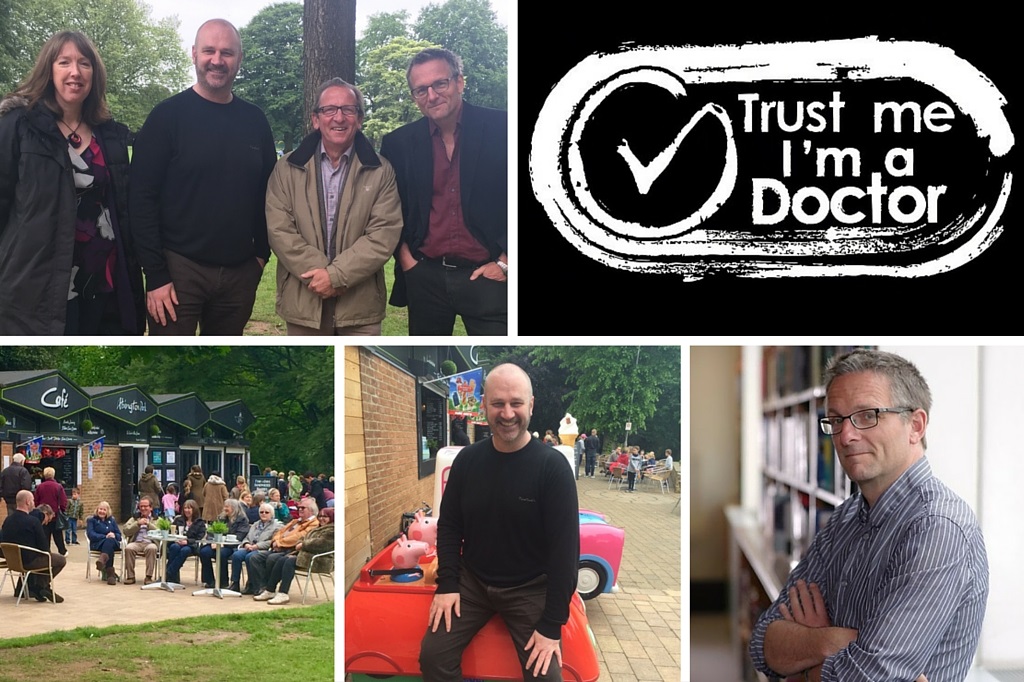Tony, Louise and Hugh help BBC’s Trust Me I’m A Doctor with mental exercise experiment
Date 21.06.2016

When Tony Kay, Associate Professor of Biomechanics, was approached by the BBC’s Trust Me I’m A Doctor TV show to help them with an experiment, he needed volunteers – and the University’s very own Hugh Davenport and Louise Sandy offered to be exercise guinea pigs!
Tony and the BBC Two team worked together on a visualisation or ‘thinking exercise’ experiment, which investigated how just thinking about exercise – rather than actively working up a sweat – can help people rehabilitate from injury and enhance their strength. Hugh and Sandy joined five other volunteers, all over 50 years of age and relatively inactive, to take part in the month-long experiment and subsequent two days of television filming.
Professor Tony Kay explained: “The study examined the impact of mental training on physical performance. So, when we go to the gym we physically train and we normally get stronger, however a lot of the adaptions are neurological rather than muscular, and there is growing evidence that thinking about performing the exercise has the same neurological adaptations and can increase strength.
“What we devised was a four week training routine, where subjects think about performing muscular contractions, and visualise themselves feeling the contraction build up in their muscle, feeling the pressure, seeing their muscle contracting harder and harder and harder.”
The seven volunteers undertook the ‘thinking exercises’ at home with the assistance of an audio tape of instructions to aid the volunteers complete the training, and kept in touch with Professor Kay throughout. Four weeks later, the group came together to find out their individual results – which many found quite surprising!
The seven participants all enjoyed being part of the experiment. Hugh Davenport, Senior Lecturer in Human Resource Management within Northampton Business School, commented: “It was fascinating to take part in an experiment over a whole month – the mental imagery required each day to ‘re-create’ the experiment became increasingly relaxing and restful, helped along by Dr Tony Kay’s audio instructions. Unfortunately I can’t say the same for the electric zappings before and after the month of mental imagery. The results were revealed en masse to all participants and filmed live, which was an exciting reveal scenario. It will be very interesting to see the finished film and realise that most footage almost always ends up as an outake on the cutting room floor!
Louise Sandy, an Administrator in Student Academic Services, explained: “It was a very interesting experience, even the bit when we were zapped on the knee with electrodes. I was really pleased to hear the positive results and being involved in the process of producing a programme for television was fascinating.”
The TV show will air in July, date to be confirmed.